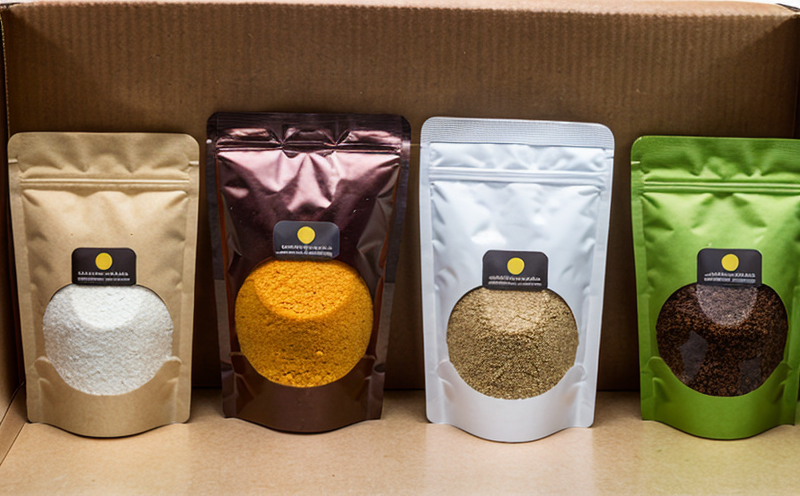Arsenic Content Testing in Packaging Materials
The presence of arsenic in packaging materials is a critical concern across various industries due to its potential health risks. Arsenic, particularly the inorganic form (Arsenic III and V), can migrate from packaging into food or beverages, leading to contamination that poses significant health hazards when consumed.
Consumer products such as bottled water, canned goods, and packaged foods are at particular risk due to prolonged contact with packaging materials. Regulatory bodies like the Food and Drug Administration (FDA) have set strict limits on arsenic content in food-contact materials to protect public health. For instance, FDA’s Total Arsenic Level Limits for Bottled Water require that bottled water contain no more than 10 parts per billion (ppb) of total arsenic.
In this service, we offer comprehensive testing solutions specifically designed to measure the levels of inorganic arsenic present in packaging materials. Our testing protocols are aligned with international standards such as ISO/IEC 17025 and utilize advanced analytical instrumentation like Inductively Coupled Plasma Mass Spectrometry (ICP-MS) for precise quantification.
Our team of experts ensures that every sample is prepared meticulously, ensuring accurate results. We employ rigorous quality control measures to maintain the highest standards in our testing procedures. This includes thorough cleaning and conditioning of samples prior to analysis, which helps in eliminating any extraneous contamination that could affect test outcomes.
The importance of this service cannot be overstated. Accurate arsenic content testing not only ensures compliance with regulatory requirements but also enhances the safety profile of consumer products. By adhering to these standards, companies can build trust with consumers and safeguard their brand reputation.
Why It Matters
Ensuring that packaging materials are free from harmful levels of arsenic is crucial for maintaining product safety and regulatory compliance. Regulatory bodies worldwide have established stringent limits on the permissible amounts of inorganic arsenic, as excessive exposure can lead to serious health issues including cardiovascular diseases, diabetes, and certain cancers.
- Health Risks: Arsenic contamination in food or beverages is a significant concern for public health. Excessive intake can cause acute poisoning leading to severe gastrointestinal distress, and chronic exposure over time increases the risk of serious illnesses.
- Regulatory Compliance: Non-compliance with set standards can lead to legal penalties, product recalls, and damage to brand reputation. Regulatory authorities like FDA and the European Union’s Regulation (EU) No 10/2011 mandate compliance with specific limits for inorganic arsenic.
- Consumer Trust: Demonstrating a commitment to safety through rigorous testing can enhance consumer trust, which is vital for long-term brand loyalty and market success.
Scope and Methodology
| Test Parameters | Methodology |
|---|---|
| Total Arsenic Content | Analysis using ICP-MS after sample preparation. |
| Inorganic Arsenic Speciation | Determination via HPLC coupled with PDA and ICP-MS. |
| Migration Studies | Simulation of real-world conditions to assess migration under specified temperature, humidity, and time parameters. |
Customer Impact and Satisfaction
- Compliance with Regulations: Our clients enjoy peace of mind knowing that their products meet or exceed all relevant regulatory standards.
- Enhanced Product Safety: By ensuring low arsenic content, companies can protect consumers from potential health risks.
- Brand Reputation Protection: Compliance and safety are key factors in building and maintaining a positive brand image.
- Market Access: Meeting regulatory requirements opens doors to new markets where stringent standards apply.





